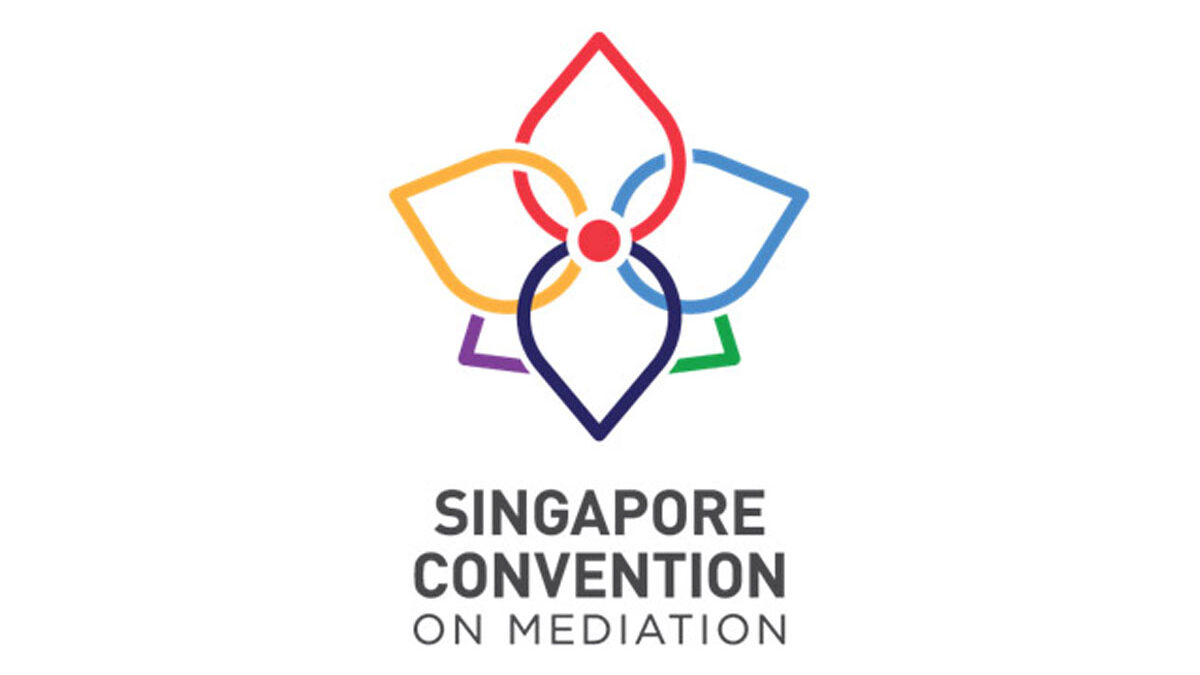
Lawyer’s Fee in the Case Condition Mediation Process (2020)
August 5, 2024
Mediation Fee Agreement
August 5, 2024United Nations (UN) Convention on the Enforcement of International Mediation Settlement Agreements
If a contract is between two states, it is called a contract/agreement. The Singapore Convention was prepared within the UN and is also called a convention because it was signed and accepted by many states. It is a contract consisting of 16 articles, known as the Singapore Convention, since it was signed in Singapore on August 7, 2019, where Turkey was among the first 51 countries to sign it.
The Singapore Convention is a very important agreement in terms of the development of international trade, paving the way for the enforceability of mediation settlement agreements signed in commercial disputes in participating countries, enabling the business world to make investments safely in different countries, and contributing to the development of international economic relations. Government and government institutions are excluded from the Singapore Convention.
International mediation has been practiced around the world for many years, but perhaps the most important reason why it has not become widespread enough is its enforceability. The Singapore convention provided a solution to this problem.
Arbitration has long been used as an international alternative solution method. However, in arbitration, the award must be recognized in the country where it will be enforced. In the Singapore Convention, the compromise agreement signed by the two parties does not need to be recognized in the relevant country.
WHAT DOES INTERNATIONAL MEAN?
According to the Singapore Convention, a dispute agreement is considered international in the following cases:
- At least two of the parties to the mediation settlement agreement have places of business in different States;
- State where the parties to the mediation settlement agreement have their workplaces;
- either from the State in which a significant part of the obligations under the mediation settlement agreement are carried out, or;
- It is the State that is different from the State most connected with the subject of the settlement agreement (article 1/1).
As can be understood from here, citizenship is not important, for example, two Turkish citizens may have their workplaces in different countries, in which case the Singapore Convention will find application. According to the Singapore Convention, the country in which the mediation settlement agreement will be executed must also have signed this agreement. For example, in a mediation agreement, both parties may be Turkish citizens, but the place of execution of the contract may be Germany. If the delivery of goods will take place in Germany, the Singapore Convention will be applied.
WHAT IS THE WRITTEN ELEMENT IN THE SINGAPORE CONVENTION?
“This agreement applies to an agreement resulting from mediation and concluded by the parties in writing to resolve a commercial dispute (“settlement agreement”)” (Article 1)
We can interpret the situation of being written broadly here. It is sufficient to save it in any way. By recording the settlement agreement in any way, the element of written form is fulfilled.
With electronic communication, the contract will be considered as a written settlement agreement. (article 2/2)
WHAT ARE THE REQUIREMENTS TO BENEFIT FROM THE SINGAPORE CONVENTION?
To the competent authority of the country where the settlement agreement will be executed,
- he settlement agreement signed by the parties,
- Evidence that the settlement agreement was made through mediation (the mediator’s signature on the agreement, a signed document issued by the mediator stating that mediation was carried out, a document issued by the institution performing the mediation or any document acceptable to the competent authority) must be submitted. Article 4/1
TO WHICH DISPUTES CAN THE SINGAPORE CONVENTION BE APPLIED?
Since this agreement can be applied to international mediation settlement agreements arising from international commercial disputes;
- Settlement agreements made to resolve disputes arising from transactions made by one of the parties (a consumer) for personal, family or domestic purposes.
- It does not apply to settlement agreements related to family, inheritance or employment law. (Article 1/ 2)
This agreement shall not apply in the event of the following situations:
Mediation Settlement Agreements,
- Settlement agreements approved by a court or entered into during litigation before a court;
- Settlement agreements enforceable as a judgment in the State in which that court is located;
- Settlement agreements that are recorded and enforceable as arbitral awards.
- This Singapore Convention does not apply if there are enforceable settlement agreements recorded as arbitral awards. (article 1/3)
The subject of the Mediation Settlement agreement does not have to be money; intangible issues can also be the subject of the agreement.
WHAT IS THE CONFINITIVE EVIDENT NATURE OF A SETTLEMENT AGREEMENT?
If a lawsuit is filed against the dispute resolved by the mediation agreement, the other party may present the mediation agreement as evidence. It is similar to the final judgment in this respect. If a lawsuit is filed after a mediation settlement agreement is reached between the parties, the other party can submit the mediation settlement agreement to the court stating that the dispute has been resolved. It must be considered as conclusive evidence by the court. (Article 3/2)
WHAT IS ENFORCEABILITY?
Each member state of the Singapore Convention will determine its own enforceability rules. International mediation settlement agreements that are not contrary to public order and do not clearly contradict its own laws can be enforced by the relevant country.
Grounds for rejecting enforceability (article 5);
1. The competent authority of the Contracting Party from which assistance is requested in accordance with Article 4 may refuse to provide assistance only if the requesting party provides evidence of:
- One of the parties to the settlement agreement does not have authority in some areas;
- The compromise agreement sought to be cited as justification:
- Is void, invalid or otherwise unenforceable under the law to which the Parties are in force or, in cases where assistance is sought under Article 4, there is no such indication under the law that the competent authority of the Contracting Party considers applicable;
- It is not binding or final in its terms, or
- Changes were made to its content later;
- Obligations in the settlement agreement;
- It has been fulfilled; or
- Not being clear or understandable:
- Providing assistance is contrary to the terms of the settlement agreement;
- Serious violation by the mediator of the standards applicable to the mediator or mediation; such that, if the breach had not existed, that party would not have entered into the settlement agreement; or
- The mediator does not disclose to the parties the situations that raise justified doubts regarding the impartiality or independence of the mediator, and the failure to make this disclosure causes a material or unfair effect on the party; such that, if it were disclosed, the party in question would not enter into the settlement agreement.
2. The competent authority of the Contracting Party from which assistance is requested in accordance with Article 4 may refuse to provide assistance if it finds that:
- If providing assistance would be contrary to the public policy of that Party; or
- If the dispute cannot be resolved through mediation in accordance with the laws of that Party, the competent authority may reject the request for enforceability.
As a result, since the mediation settlement agreements made in the international commercial field with the Singapore Convention can be enforced without any judicial activity in the relevant country, it will provide rapid results, contribute to the development of international trade, ensure safe investments in the relevant states, and from now on, mediation will be much more important in international disputes. It is considered that it will be preferred.




